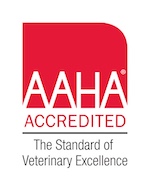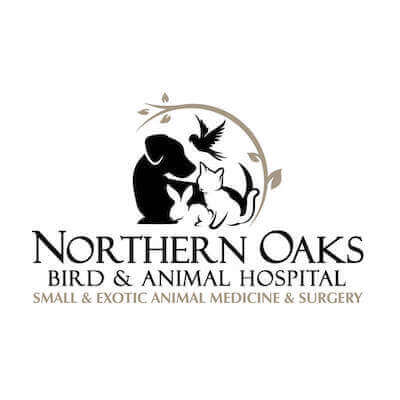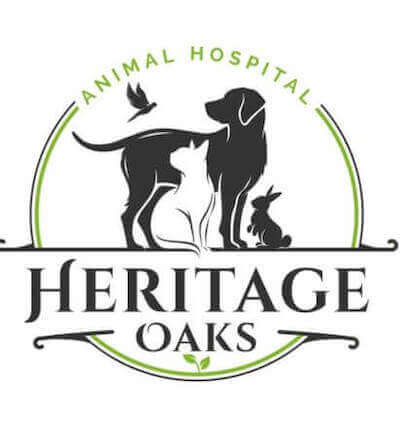We are ardently proactive in treating and protecting your dog's dental health before it becomes a permanent problem. During every examination, our veterinarians will perform an oral visual examination to assess the teeth and gingiva and partner with you to address any issues and create a plan for optimal dental health maintenance. We are most concerned with signs of gingivitis, broken teeth, periodontal disease, and other painful dental and oral lesions. Our doctors may recommend dental cleaning.
Northern Oaks Bird & Animal Hospital and Heritage Oaks Animal Hospital
veterinary professionals (a veterinarian and veterinary technician to aid in the dental cleaning and patient care during the procedure).
Dental care at home consists of daily brushing. Just as with humans, dogs need the plaque and biofilm removed from their teeth on a daily basis to avoid dental disease. The vast majority of dogs will accept daily brushing, but the reality is it does not occur. We are here to teach you how to brush your dog's teeth and provide you with the best brush and dental paste according to your dog's size and flavor preference. However, not every dog will tolerate it, and not every person is willing or able to brush their dog's teeth.
The Veterinary Oral Health Council (VOHC) lists many dog diets and treats that can be helpful if your dog will not tolerate brushing (vohc.org). These approved diets and treats provide some supplemental dental care. But, just as humans require regular dental care to maintain dental health, it takes more than a chew toy to care for your dog's mouth, gums, and teeth.
Dog Bad Breath, A Sign Of Things To Come
Dog bad breath is generally a result of the bacteria that live in the infected gum and dental tissue in your dog's mouth. This odor is a sign of progressive dental disease. It will not get better without a thorough veterinary dental cleaning and a proper home care plan.
Signs And Symptoms Of Dog Dental Issues
The best way to prevent dog dental issues is to be proactive. Part of this process includes periodic dog teeth cleaning, but the other part requires vigilance on your part as the dog's owner. If your dog displays any of the following symptoms, you should schedule a veterinary appointment ASAP:
- Bad breath / Halitosis
- Problems eating, loss of appetite (only in the most severe cases)
- Red, swollen, bleeding gums (usually the molars in the back of the mouth)
- Loose, broken, missing teeth
- Blood in saliva or nasal discharge
- Lesions in mouth
Should you notice any of these symptoms, schedule a veterinary appointment right away.
Our veterinarians will develop a customized plan of prevention or treatment based on what is found during the dog dental exam at your next visit.
Dog Dental Treatments
The dog dental care services provided here at our hospitals begin with an examination by one of our veterinarians. If dental issues are found in your dog's mouth, our veterinarian will explain the situation to you and recommend a dental procedure. During this procedure, once your dog is sedated, our veterinarians are able to conduct a more thorough exam including visualizing the entire oral cavity and throat area, probing gingival pockets to assess periodontal disease and dental x-rays. Only half of the tooth is under the gum line. It is imperative that radiographs are performed to complete an assessment of the tooth. Often teeth look completely normal but the roots are abscessed and a great source of pain for your dog. We utilize all the tools necessary to make sure your dog is completely free of dental disease and pain.
Comprehensive 6-Step dental surgery protocol :
- General anesthesia, which is necessary in all cases for a thorough dental examination and professional cleaning. As an AAHA accredited practice, we use only the safest anesthesia protocols and human quality products. Your dog will be continually monitored during the entire procedure for the safest and most comfortable experience.
- A complete dental examination will be performed before we begin any dental procedure. Dental radiographs are obtained at this time to view the internal anatomy of the teeth including the roots and surrounding bone..
- Ultrasonic and hand scaling to remove plaque and tartar above AND below the gum line, where illness causing bacteria hide.
- Polishing to smooth the surface of the teeth after scaling, making them resistant to additional plaque formation.
- Flushing to remove dislodged tartar, plaque, and bacteria from the mouth.
- If it is determined that an infected tooth requires extraction, or there is a problem with the gingiva that must be addressed, then and only then will oral surgery be recommended.
Oral Surgery For Dogs
If oral surgery is necessary, it will provide your dog with a new lease on life. In these cases, your dog is dealing with significant pain and is compensating for it in a variety of ways. Our veterinary staff is capable of resolving a variety of oral maladies, including:
- Gingival surgery - including tumor removal and removal of excessive gum tissue secondary to periodontal disease
- Extensive extractions of impacted or damaged teeth
- Oral tumor removal
Our dog dentistry suite of equipment allows our veterinarians to precisely perform whatever oral surgical procedure is necessary, in order to help your dog live, or regain a healthy and happy quality of life.
The Harsh Reality Of Periodontal Disease In Dogs
Periodontal disease in dogs is the most common clinical condition occurring in adult dogs. By three years of age, most dogs have some evidence of periodontal disease. Unfortunately, other than bad breath, there are few signs of periodontal disease in dogs evident to dog owners and professional diagnosis often comes too late to prevent extensive damage. Periodontal disease in dogs, if left untreated, will lead to infected, nonviable teeth and significant dental pain. Non Anesthetic Dental cleanings are simply not thorough and only clean the outside surface of the enamel.
The way to successfully avoid periodontal disease is to schedule semi-annual dog dental examinations and dog teeth cleaning procedures with your veterinarinarian. By doing so, you are ensuring that your dog remains at low risk for developing periodontal disease.
Schedule Your Dog's Dental Procedure Appointment
Scheduling an appointment with one of our veterinarians is as easy as picking up the phone, or sending us an email. Our veterinary staff is here to help make your dog's dental procedure appointment easy for you while making it as painless and pleasant as possible for your dog.
Dog Dental - FAQs
Dr. Becka Byrd
Northern Oaks Bird & Animal Hospital
Why do we use anesthesia for dog dental cleanings?
We use anesthesia for dog dental cleanings to conduct a thorough cleaning and assessment. This includes dental x-rays, probing the gum line, removing the calculus, scaling the teeth with an ultrasonic scaler, and polishing the teeth, all of which cannot be done on an awake pet.
What happens in non-anesthetic dental procedures?
Non-anesthetic dental procedures only involve removing calculus. These procedures don't polish the teeth, which allows more calculus to settle in the grooves. This does not contribute to the pet's health and there can still be deep pain in the infected roots.
How is anesthesia administered for the procedure?
Anesthesia is administered via both an IV and gas through an endotracheal tube. We also give IV fluids during the procedure to help maintain anesthesia. The entire process is monitored by both a licensed veterinary technician and state-of-the-art machinery.
Why are antibiotics and pain medications sometimes offered?
Antibiotics and pain medications are offered if the dog has a very diseased mouth that requires extractions or has infections. These medications are essential for treating the disease and keeping the dog comfortable during recovery.
How can you know if a dog will have a reaction to anesthesia?
Unfortunately, you can't predict if a dog will have a reaction to anesthesia. The best we can do is perform blood work beforehand, ensure the pet is healthy through a physical exam, and conduct the procedure in an accredited hospital with good monitoring equipment.
Is there an age that is too old for dental cleaning?
There is no age that is too old for dental cleaning. Health issues can be a concern, but if a dog is healthy despite its age, there is no contradiction to dental cleaning. Anesthetic reactions are incredibly rare in safe hospitals.
If you still have other questions and you'd like to reach out to us, you can call us directly at (210) 496-1315, or you can email us at [email protected]. But please do reach out, and we'll get back to you as fast as we can. Don't forget to follow us on social media Facebook, Instagram




